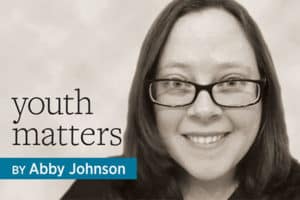
This is an excerpt from “Creating Space for Agency,” Knowledge Quest, Sept./Oct. 2017.
Agency helps students navigate an increasingly digitized world, but it does not spring from a vacuum. It grows from a sense that one is real and present and valued. Our students will be the innovators and creators of the future, and the role of the library is to help them realize this potential—which means all students need to see themselves in the school library.
It’s easy to imagine no LGBTQ students are at a given school, and therefore no need exists to court controversy by providing LGBTQ materials, but LGBTQ students are everywhere. I loved to read as a kid, but when I looked inside the books on the shelves, I wasn’t really there.
LGBTQ students are not the only ones to feel underrepresented and alone. When students look around their schools and libraries, they need to see their diversity, their intersectionality, and the richness of their personal stories, in print and online. What are some of the ways we can do this?
Develop collections. The American Library Association Code of Ethics calls for us to collect and curate materials in the most wide-ranging fashion possible and to fight for access to information for all. We buy science fiction even if we don’t read it and crocheting books even if we only knit.
When you consider that many LGBTQ students may not be out to their parents, the need for school support—for all students—becomes more important. All students need libraries with resources that mirror who they are and who they might become. They need stories that reflect their passions, interests, and struggles, and those of their classmates and people they have never met.
A dearth of LGBTQ materials may be because of the belief that elementary school students are too young to have any kind of sexual orientation. This belief never seems to prevent many versions of Goldilocks, featuring heterosexual families of bears, from finding a place on shelves, but it has caused problems for And Tango Makes Three, a book about gay penguins who adopt a penguin chick.
Move beyond representation. There is much to be done beyond buying books and placing them on the shelves—or behind the circulation desk, available only with parent permission, which a frightened, questioning child is unlikely to ask for.
All students need libraries with resources that mirror who they are and who they might become.
While it’s important to have coming-out stories, it’s equally important to have books with LGBTQ characters doing other things. After all, coming out is—we hope—not the main or only event in an LGBTQ person’s life. Personally, I have spent more time playing soccer, pulling weeds, and reading books about teenage vampires.
Sometimes no perfect resource is available, which is why we must continue to ask publishers for the materials we and our students deserve. If a book or article that covers what a student is looking for isn’t available, there might be an expert willing to speak to students in person or via Skype.
Use technology with care. A questioning student may be more comfortable checking out an ebook instead of marching up to the circulation desk, rainbow-lettered book in hand. However, technologies theoretically used to keep students safe may cause harm.
Even after the ACLU’s “Don’t Filter Me” campaign, filters in many school districts are far from perfect. In my own district, the Rainbow Wedding Network website is blocked—as “pornography” no less—but The Knot is not. This filtering could lead LGBTQ students imagining their future wedding to feel that their love is dirty, shameful, and forbidden. Filtering can be a difficult subject, but it’s likely that no one except you, the librarian, has the skills, experience, and professional judgment to speak up in cases when filters create a biased information environment.
I believe that we have a responsibility to all students to consider lenses that are not our own. Confronting privilege and sharing our own stories can be hard. If we are willing to do this work, we can help students find strength in their diversity and perspectives. The future is theirs, and we can empower them to create it.


